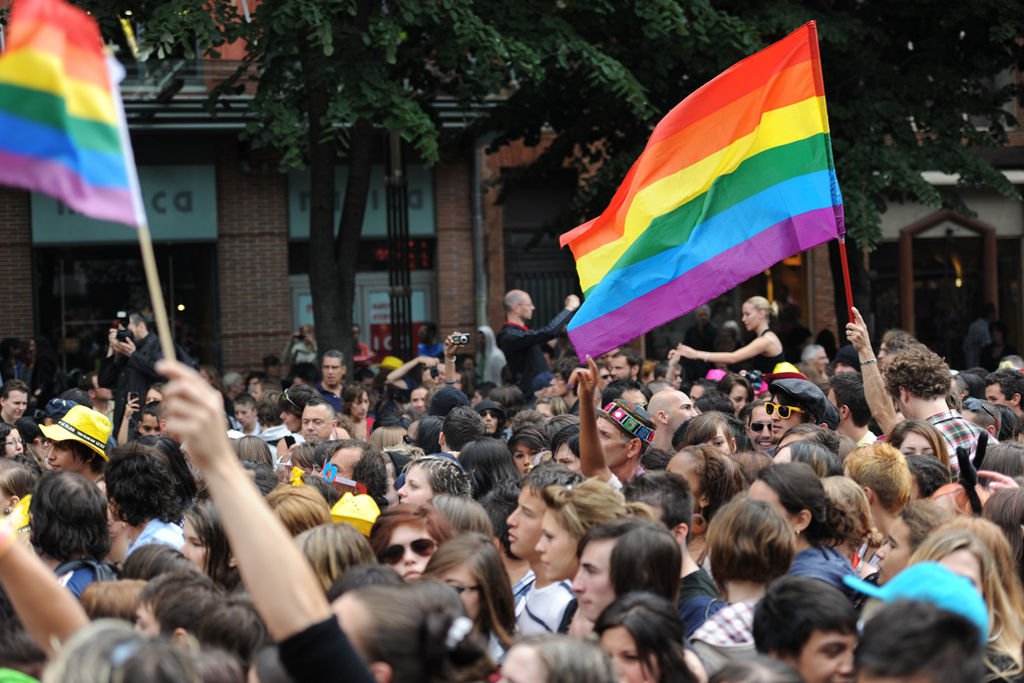What The Marriage Equality Postal Survey Can Teach Us About Australia’s Future
We can look to our recent past to find a way forward after the shock election result.

The federal election outcome shocked and surprised many, including some in the Coalition. The result has been met by many on the progressive side of politics with anger, frustration and sadness.
It breaks my heart to see Australians turning on each other because of how they voted, without talking about why or understanding where Coalition voters are coming from. Perhaps if we had more meaningful conversations about the challenges ahead, rather than attacking those who disagree with us, we wouldn’t have had this “Trump-light” surprise result.
What We Can Learn From The Postal Survey
The strongest electoral result in Australian history was the same-sex marriage postal survey. We won 133 seats by listening and addressing concerns, visiting towns small and large, and empowering supporters to have a chat with friends and family about our values of fairness and equality and sharing the opportunity for us all to shape Australia as a better and fairer place with their vote. The confronting reality is millions of Australians changed their mind to support marriage equality over the years, and millions of those open-minded voters voted for Scott Morrison as Prime Minister on Saturday.
The Coalition won on jobs, economic stability and the future, yet failed to deliver a clear vision for the environment or action on climate change. Labor and the Greens were strong on the environment and action on climate change, but didn’t deliver the message of how this can create jobs, boost the economy, and save our nation’s future. The debate became ideological and lost voters, especially in Queensland where people felt their jobs were on the line.
The exception to this was South Australian Senator Sarah Hanson-Young. She campaigned to save the Great Australia Bight from oil drilling by talking about protecting the tourism industry, and she launched an energy policy to cut energy prices and create employment opportunities in South Australia by investing in renewables. Senator Hanson-Young doubled her vote and was arguably the most successful progressive politician at the election.
“Perhaps if we had more meaningful conversations about the challenges ahead, rather than attacking those who disagree with us, we wouldn’t have had this ‘Trump-light’ surprise result.”
Then there were the independents: consistent, effective and community focussed. In the diverse range of seats they hold, they communicated the threats of climate change, had conversations with their electorates about both the urgency and opportunities created by taking action and they mostly won. Although Kerryn Phelps narrowly lost Wentworth, her strong stance on climate action forced Liberal Dave Sharma to be more vocal on the matter than at the October by-election, and a gave him a mandate to push for action within the Coalition government.
The other striking aspect about the federal election result was the similarity with the recent New South Wales result. The incumbent was narrowly returned with the need to work productively with independent cross-benchers. In both cases this will provide a safeguard for our environment. During the NSW election, along with my fellow independents, we launched a joint policy for transitioning the NSW economy and energy dependency from coal to renewables. We focussed on the jobs that would be created, the communities we needed to support, and the economic gain that would come. We all got re-elected with increased votes, especially Greg Piper, the Member for Lake Macquarie, whose electorate includes coal communities. Greg won every polling booth, and his vote increased by 11 per cent due to his reasoned, compassionate and practical approach to protecting the environment.
We Must Unite, Not Divide
The challenge of global warming grows greater every day. To win over the voters we have failed to, we must shift from ideology that divides to opportunity that can be shared. Climbing the Harbour Bridge and unfurling a banner doesn’t change any votes, but sitting down and listening to the concerns of coal communities and providing them with options and solutions could make all the difference. Telling off voters for supporting the Coalition won’t change anything, but understanding their fears will form the basis of strategies and arguments to help shift them (and their MPs) from sceptics to champions.
Some may feel it’s too soon for this type of post mortem. The desperate reality is we don’t have time. The UN Intergovernmental Panel on Climate Change Special Report on Global Warming of 1.5 Degrees shows that current efforts will result in dangerous warming of two to four degrees Celsius by 2100, which will have drastic impacts on human civilisation from extreme weather, sea level rises and loss of species. According to the Australia Institute we also have some 60,000 new jobs at risk from slowing global coal markets if we fail to invest in and transition to renewables.
In this urgent time for both our environment and economy, please don’t worsen the situation by turning on those who voted differently; talk with them today, and win them over tomorrow (or at the latest by the next election!)
Alex Greenwich is the Independent state MP for Sydney, and led the Yes campaign in the 2017 postal survey on marriage equality. He tweets @AlexGreenwich.

